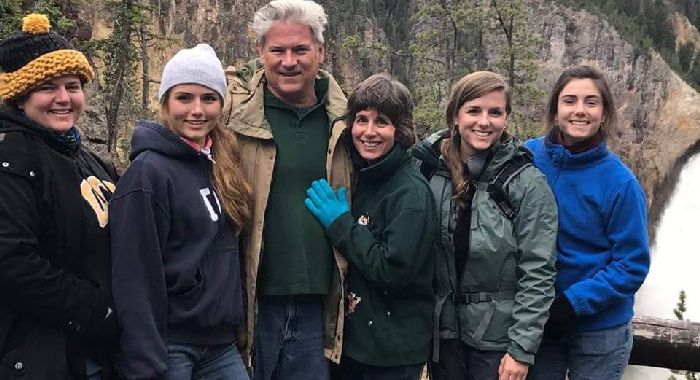
Silence Is Status Quo
Shelly Hassett is the featured writer for this month’s post. Shelly is twenty-four years old. She has a B.S. in Environmental Studies and teaches elementary school science. I met Shelly when she was in middle school. When all the other students were in line talking a mile a minute on the way to lunch, there was Shelly, book in hand, learning about the world. She’s extremely well-read which is why I keep encouraging her to write. I was thrilled when she agreed to write this post.
Silence is Status Quo
 By Shelly Hassett
By Shelly Hassett
In a democracy, there is no way to opt out of taking a side. Silence favors the status quo.
The point of an education is to prepare you to be a productive citizen. Since we live in a democratic republic the skills citizens need are not limited to the economic: you also need to refine your ability to think critically and communicate clearly.
However, your education should not stop in the classroom. If we want a world of peace, we must learn to speak peacefully to those we disagree with. To paraphrase a tweet I saw a while ago: not talking about religion and politics doesn’t make those issues go away, it just makes us really bad at talking about religion and politics.
Why are we so afraid to talk about the things that matter with the people who are in our lives?
Well, there are some good reasons for this taboo. These topics make people uncomfortable because our politics and beliefs are closely linked to our identities. People can react unpleasantly and even violently if they feel that they are being personally attacked, and these conversations do sometimes become a personal attack of a bullying kind. Especially with the lack of manners associated with the facelessness of internet conversations. I absolutely agree that in our world today you must choose wisely who you have these conversations with. But we must have them.
Here’s the deal: the primary worldview of the west is something called rationalism. This means among other things that in general, we believe that our opinions and actions should be based on good reasons and evidence. Whether or not you care about philosophy, this is an unspoken norm that guides how we act. Even if the justification is built on false evidence, we still want justification for what we believe about the world.
At least, we used to want good reasons. I’m sure you’ve heard by now that many people think we live in a post-truth world, where whatever you feel is real for you, and that’s the only reality that matters.
Post-Truth is a lie that makes us weak and manipulable. If you’ll believe whatever is convenient without a rigorous examination of your beliefs it is easy to get swept along by the narratives of the powerful. Whatever story the powerful are spinning is often not in the best interest of the majority. These days the powerful are anyone with a platform and anyone who can control who has a platform- so media and universities have their spin as well as governments, corporations, and celebrities. Everyone uses spin, that’s not the issue. It’s whether or not there are checks and balances for the power. It’s being able to call them on their falsehoods and advocate for accountability to the greater good.
Clearly, it is important to me that what I believe and what I fight for is based on reality and truth. With so many narratives out there you have to carefully examine what you read and hear to make sure it is consistent with other things you know to be true. One way to test and explore the opinions you hold is to read a lot and write a lot. I call this the “independent study” approach.
Independent study is a great way to learn at your own pace and explore the topics that matter most to you. The great privilege of our time is that we have access to all kinds of quality information from the comfort of our own homes. There are even websites that will help with your fact-checking. Snopes is one of my favorite sites to use for a quick reality check. Make no mistake; knowledge can be power.
Debates are another way to learn and refine your arguments. I love a bit of verbal repartee. It’s fun for me to match wits. However, I know many people who hate debates and avoid voicing opinions for that reason. Guess what? A conversation about religion or politics does not automatically need to be a debate. It is possible to have a quiet, earnest, and illuminating conversation on politics without it devolving into an argument.
By far this is my favorite way to refine my ideas and check in with others to see if I missed something.
Civil conversation with someone can circumvent several problems with the independent study approach. They can expose you to perspectives that you otherwise may not have come across in your research. Even more important, they can help you understand why someone might have an opposing perspective on an issue. In my experience, these conversations can be very affirming, even with someone you disagree with. They can even be fun.
It’s easy to con one person. It’s not that difficult to bamboozle a small group. But if you have a lot of people all communicating and all united in their pursuit of truth your chances of being swept along by a convenient and fictitious narrative plummet.
That’s where the root of my concern is. I want to make sure I am upholding my responsibility to my neighbors to have their back and support them.
My best success in pursuing these conversations has occurred under similar parameters each time. The conversation was by appointment, and there was an understanding from the beginning that we were talking for greater mutual understanding, not to persuade. These conversations were face to face when possible, and ideally over dinner. When I’ve had these conversations unintentionally, they’ve still been productive, but usually, they are also a bit stormier.
Most of the conversations I’ve had about current affairs, religion, and philosophy have been with people my own age. It’s important to have these conversations with your peers, but we need to have them across generations as well, and we need to have them with people we disagree with. If you live in an echo chamber, you don’t learn much. Start with adults you trust and respect, and don’t forget the younger people in your life as well.
Get out there, get outside your comfort zone, and work with your friends and family to hold each other accountable for rigorous, evidence-based beliefs through great conversations. It’s one more way you can contribute to making the world a better place.



